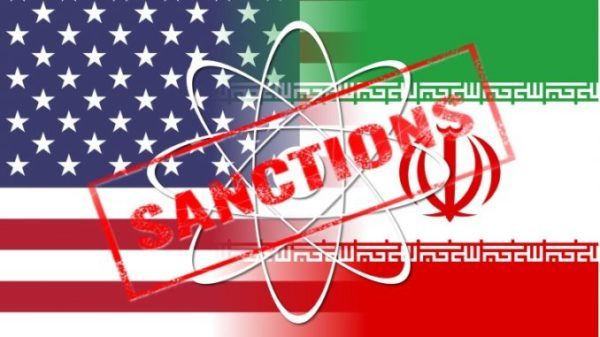Iran still has reservations about a draft deal to revive the 2015 nuclear agreement it struck with world powers, Iranian and Western officials said Monday. It was the latest sign that talks to restore the deal could drag well past what some had earlier described as a Monday deadline.
Iranian Foreign Minister Hossein Amir-Abdollahian said his country hoped to share its ”final thoughts” with European officials by the end of the day.
According to one senior Western official, the Iranian answer was received by the EU on Monday evening Brussels time. The response is mostly focused on outstanding questions related to sanctions and guarantees around economic engagement. Over the last few months, Iran has continuously demanded assurance that it will be able to reap the economic benefits of a restored deal.
According to that same official, the Iranian reply does not contain any further demands with regard to the investigation by the International Atomic Energy Agency (IAEA) into the origins of multiple traces of nuclear material that IAEA inspectors found at various sites in Iran during the past few years. Tehran has objected to the investigation and insists that the nuclear deal can only be restored if this probe by the IAEA is closed, once and for all.
The EU has drafted a proposal that will allow that to happen if the IAEA confirms that Iran has provided credible answers into the origin of the uranium traces prior to the so-called reimplementation day — the day that the nuclear deal will go into effect. But the proposal would also enable Iran to block reimplementation day, should the probe remain open.
There is no final confirmation that Iran has accepted this EU proposed deal on the IAEA safeguards investigation — or whether Iran has taken it off the table — but it seems at least in the current reply, there is no more mention of it.
Amir-Abdollahian’s remarks came as Iran’s Supreme National Security Council held an extraordinary meeting Monday afternoon, which was chaired by Iranian President Ebrahim Raisi. At the meeting, Iranian chief nuclear negotiator Ali Bagheri Kani presented a detailed report about the nuclear talks, according to Nour News, a website linked to Iran’s Supreme National Security Council.
The response as delivered suggests that Iran wants to continue negotiating some aspects of the draft text and falls short of providing a final reply on whether it accepts or rejects the deal put on the table by the EU one week ago in Vienna.
Yet, the Iranian reply does not sound “too inflammatory,” according to the Western official.
Diplomats from Britain, France, Germany, Iran, Russia, China and the United States have held intermittent negotiations in the Austrian capital for 16 months in an effort to revive the 2015 Iran nuclear deal, or Joint Comprehensive Plan of Action (JCPOA), as the agreement is officially called.
The talks have been brokered by Enrique Mora, the EU’s senior official responsible for the Iran nuclear file. Mora has been shuttling between U.S. chief negotiator Special Envoy Robert Malley and his Iranian counterpart, Ali Bagheri Kani, because Iran still refuses to talk to the U.S. directly.
The U.S. also has been reviewing the draft text tabled by the EU last week. Malley told PBS on Friday: “We are considering the text very carefully to make sure that it lives up to the president’s very clear guidance that he would only sign up to a deal that is consistent with U.S. national security interest.”
U.S. officials did not immediately respond to requests for comment on the latest Iranian response to the draft text.
But Malley earlier said that the U.S. was “prepared to come back into compliance with the nuclear deal if Iran does the same.”
“And, for us, it’s very clear what that means, in terms of the sanctions relief we need to offer and the kinds of steps that Iran needs to take to roll back its nuclear program,” he said.
Dangerous activities
“If Iran wants these sanctions lifted, they will need to alter their underlying conduct,” Price said. “They will need to change the dangerous activities that gave rise to these sanctions in the first place, ” State Department spokesman Ned Price was quoted by AP as saying .
He added that Iran had been making “unacceptable demands” going beyond the text of the 2015 nuclear deal, which saw Iran drastically limit its enrichment of uranium in exchange for the lifting of economic sanctions.
As of the last public count, Iran has a stockpile of some 3,800 kilograms (8,370 pounds) of enriched uranium. Under the deal, Tehran could enrich uranium to 3.67% purity, while maintaining a stockpile of uranium of 300 kilograms (660 pounds) under constant scrutiny of surveillance cameras and international inspectors.
Iran now enriches uranium up to 60% purity — a level it never reached before and one that is a short, technical step away from 90%. Nonproliferation experts warn Iran now has enough 60%-enriched uranium to reprocess into fuel for at least one nuclear bomb. Meanwhile, the surveillance cameras have been turned off and other footage has been seized by Iran.
POLITICO/ AP


Leave a Reply
You must be logged in to post a comment.